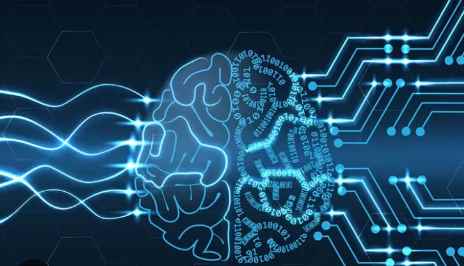Artificial intelligence (AI) is rapidly transforming the way businesses operate, and marketing is no exception. From chatbots to predictive analytics, AI is helping marketers understand and engage with their target audiences in new and innovative ways. In this blog post, we'll take a look at 15 examples of AI in marketing that are particularly impressive.
- Chatbots: Chatbots are one of the most common forms of AI in marketing, and for good reason. They can provide 24/7 customer support, answer common questions, and even help with lead generation.
- Predictive Analytics: Predictive analytics is another powerful form of AI that can help marketers predict consumer behavior. By analyzing data on customer demographics, behavior, and preferences, predictive analytics can help businesses identify patterns and trends, and make data-driven decisions.
- Personalization: AI-powered personalization is becoming increasingly popular in marketing. By analyzing customer data, businesses can create highly-targeted, personalized marketing campaigns that are more likely to be successful.
- Image and Voice Recognition: AI-powered image and voice recognition is being used by businesses to better understand and engage with their customers. For example, image recognition can be used to identify customers in a physical store, while voice recognition can be used to provide personalized recommendations in a mobile app.
- Content Generation: AI-powered content generation is helping businesses create high-quality, unique content at scale. By analyzing data on customer preferences and behavior, AI can generate text, images, and videos that are more likely to be engaging.
- Social Media Monitoring: AI-powered social media monitoring is helping businesses understand what their customers are saying about them online. By analyzing social media data, businesses can identify trends and sentiment, and respond accordingly.
- Email Marketing: AI-powered email marketing is helping businesses create highly-targeted, personalized email campaigns that are more likely to be successful. By analyzing data on customer behavior and preferences, businesses can send highly-relevant emails that are more likely to be opened and acted upon.
- E-commerce Recommendations: AI-powered e-commerce recommendations are helping businesses increase sales by providing personalized product recommendations to customers. By analyzing data on customer behavior and preferences, businesses can recommend products that are more likely to be of interest.
- Customer Service: AI-powered customer service is becoming increasingly popular in marketing. By analyzing customer data, businesses can create highly-targeted, personalized customer service that is more likely to be successful.
- Ad Targeting: AI-powered ad targeting is helping businesses reach the right audiences with their ads. By analyzing data on customer behavior and preferences, businesses can target ads to the right audiences and increase the likelihood of conversions.
- SEO: AI-powered SEO is helping businesses improve their search engine rankings by analyzing data on customer behavior and preferences. By understanding what customers are searching for, businesses can create content that is more likely to be found by search engines.
- Influencer Marketing: AI-powered influencer marketing is helping businesses identify and engage with the right influencers for their campaigns. By analyzing data on customer behavior and preferences, businesses can identify influencers that are more likely to be successful.
- Fraud Detection: AI-powered fraud detection is helping businesses prevent fraud by analyzing data on customer behavior and preferences. By identifying patterns and trends, businesses can identify suspicious activity and take action to prevent fraud.
- Voice Assistants: AI-powered voice assistants such as Amazon Alexa and Google Assistant are being used by businesses to provide personalized customer service and recommendations. By analyzing data on customer behavior and preferences, businesses can provide highly-relevant information and recommendations through voice assistants
- Virtual Reality: AI-powered virtual reality is being used in marketing to create immersive, personalized experiences for customers. By analyzing data on customer behavior and preferences, businesses can create virtual reality environments that are tailored to specific audiences. For example, a real estate company can use virtual reality to give potential buyers virtual tours of properties, while a fashion company can use it to create virtual fitting rooms. This technology can also be used to create interactive and engaging brand experiences, such as virtual product demonstrations or virtual events.




Leave Comment